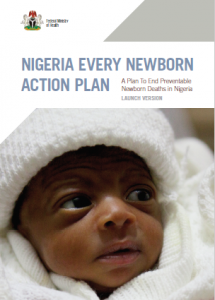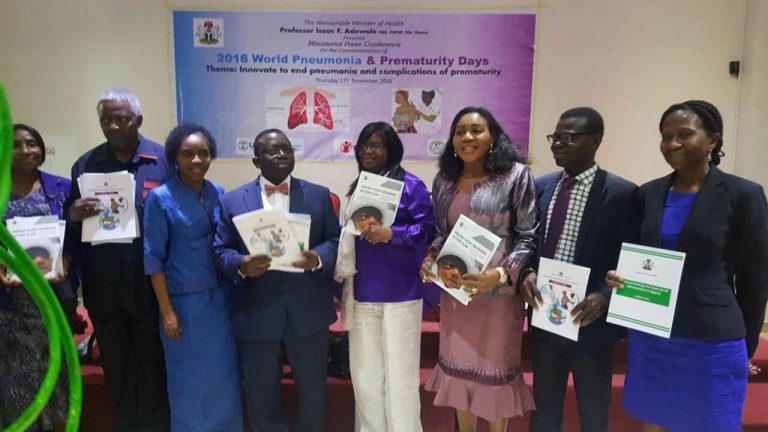By Dr Abimbola Williams, Newborn and Child Survival, Save the Children Nigeria
On November 17, 2016, Nigeria marked World Prematurity Day with the release of the Nigeria Every Newborn Action Plan (NiENAP). This document, the culmination of more than two years of work, began with a systematic analysis of bottlenecks and solutions for newborn health and countless hours of discussions around priority areas with policymakers at all levels of government, technical experts, civil society, and donors.

During the past year, I became discouraged by how progress had slowed, so as leader of a newborn health project for Save the Children, I urged our partners to jumpstart the process and try to have a document ready to launch at World Prematurity Day. We held a stakeholders’ meeting in Dakar just three weeks ago to review progress, targets, and set out milestones, and some of the partners were telling me, “It won’t happen, we can’t get this done.”
But I told them that it has to happen – and it did.
Colleagues consider me a champion for newborn health: this has been and will continue to be my passion. That’s why I will show up anywhere in support of this cause. It is not about the health sector for me: it is about making sure we scale up effective interventions to improve outcomes for newborns. In my opinion that calls for integration. If we take better care of mothers that will greatly influence the outcomes for our newborns as well.
At the event today, it was especially gratifying to see Minister of Health Professor Isaac Folorunso Adewole – testament to the exemplary priority the ministry places on this issue. But many other partners and stakeholders from the states were there as well, and we could not have got to this point without their support and collaboration.
We planned for 70 people to attend the launch today, a number we easily surpassed. But more importantly, people stayed behind to talk about newborn health: What are the next steps? How can we make sure this doesn’t just stay at the national level? How can states start making individual action plans that reflect the states’ newborn health contexts? Everyone wanted to begin work right away!
After we complete distribution of the NiENAP widely – to partners, states, and local governments – my next steps will be to work with states where Save the Children is active and advocate for the NiENAP to be integrated into both state and local government plans. Then Save the Children will continue to support states with advocacy, technical advice, and encouragement. We are hopeful that our other partners will do so as well.
With a consistent effort and ongoing support to government at subnational levels and collaboration from our donors and partners, I know we will soon see accelerated progress toward Nigeria’s goal of ending all preventable deaths of newborns and stillbirths and ensuring that children not only survive, but also to thrive and reach their full potential.
